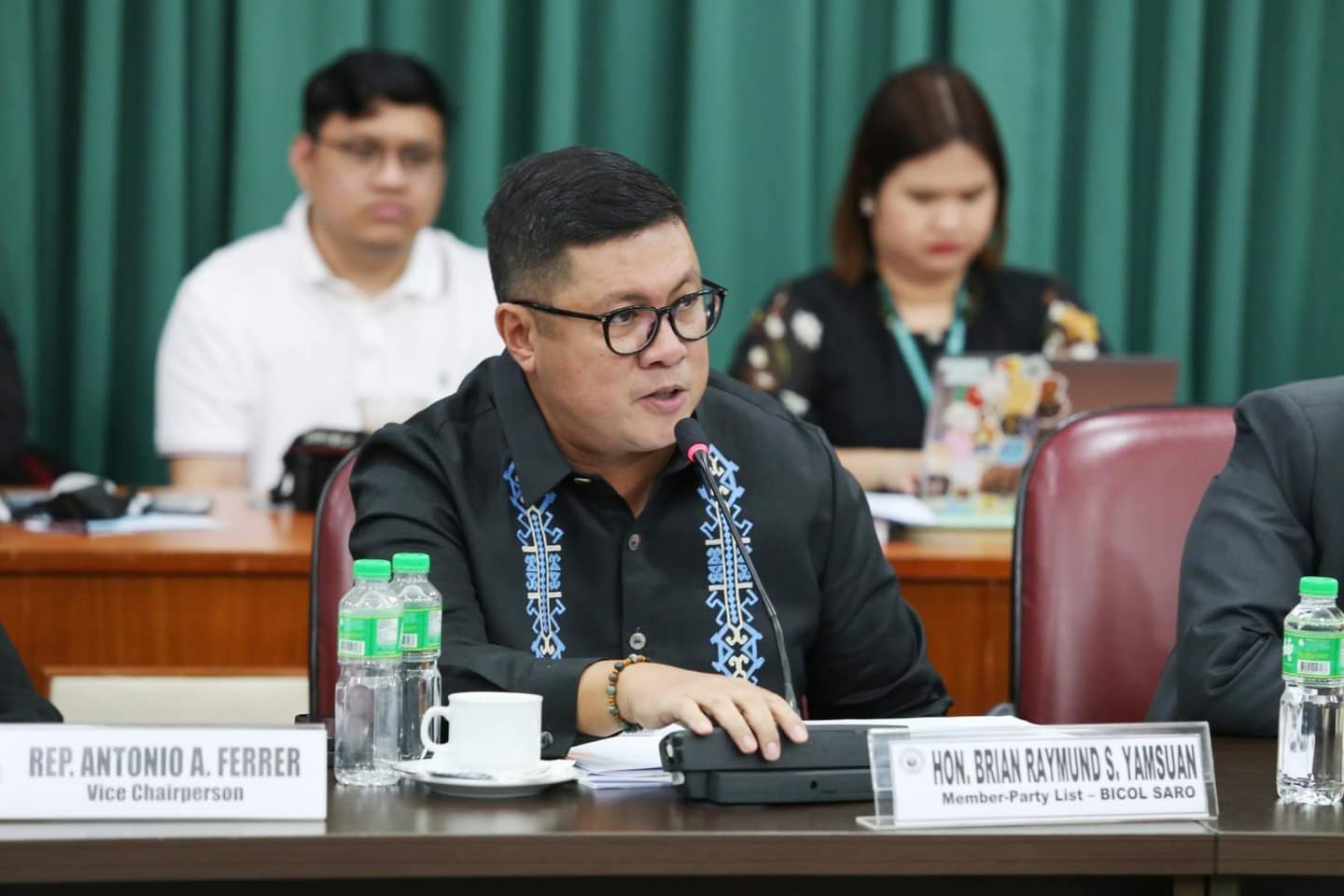Yamsuan seeks review of ASEAN agricultural practices amid climate change
At A Glance
- Bicol Saro Party-list Rep. Brian Raymund Yamsuan has emphasized the need to reevaluate agricultural practices among member states of the Association of Southeast Asian Nations (ASEAN) amid threats posed by climate change and other "escalating challenges".
 Bicol Saro Party-list Rep. Brian Yamsuan (Facebook)
Bicol Saro Party-list Rep. Brian Yamsuan (Facebook)
Bicol Saro Party-list Rep. Brian Raymund Yamsuan has emphasized the need to reevaluate agricultural practices among member states of the Association of Southeast Asian Nations (ASEAN) amid threats posed by climate change and other “escalating challenges”.
Yamsuan said the ASEAN should prioritize sustainable investments in the food, agriculture, and forestry sectors for the region’s food security and long-term prosperity.
He said this should complement a collaborative approach that involves governments, civil societies, private sectors, and parliamentarians who can shape policies and allocate resources to support this goal.
“Parliamentary leadership is crucial in driving the policy reforms needed to enhance food security and mitigate the adverse impacts of climate change on our food systems,” said Yamsuan during the ASEAN Guidelines on Promoting Responsible Investment in Food, Agriculture and Forestry (ASEAN-RAI) in Jakarta, Indonesia.
“It is incumbent upon us, as elected representatives, to champion policies that incentivize sustainable agricultural practices, promote agroecology, safeguard biodiversity, and provide support to farmers and rural communities,” he added.
As chairperson of the House Committee on Aquaculture and Fisheries Resources, Yamsuan represented the Philippines in the meeting.
He noted that the ASEAN region, which is rich in resources, is now facing challenges brought on by rapid population growth, urbanization, changing consumption patterns, and the impacts of climate change, among other concerns.
This prompts an “immediate and profound reevaluation of our agricultural practices,” he said.
Based on the latest figures, Southeast Asia's agriculture sector contributes 12 percent to the region’s gross domestic product (GDP) and employs more than 100 million people.
In the Philippines’ case, the lawmaker said the country has long been committed to ensuring that there are sustainable investments in food, agriculture, and forestry.
“Our legislative measures and strategic partnerships are reflective of these priorities and we intend to further this cause not only for our country’s benefit, but for our region as a whole,” said Yamsuan.
During the ASEAN-RAI meeting, he cited the recently enacted Republic Act (RA) No. 12078 or the Rice Stabilization Act. He said the law is aligned with the region’s goal of incentivizing sustainable agricultural practices.
The law, which amends the Agricultural Tariffication Act, seeks to ensure rice price stability while increasing the government’s budget for agricultural modernization and assistance to small farmers from P10 billion to P30 billion.
The Bicol Saro solon noted that Congress recently passed legislative measures that aims to establish multi-species fish hatcheries.
He said this is poised to augment the country’s output in the aquaculture sector through the production of an estimated 12.5 million fingerlings annually per hatchery.
Yamsuan also mentioned the ongoing inquiry conducted by the House quinta-committee (quinta-comm) to address issues of smuggling and the price manipulation of essential goods. He explained that this reflects the Philippines’ commitment to sustainable development.